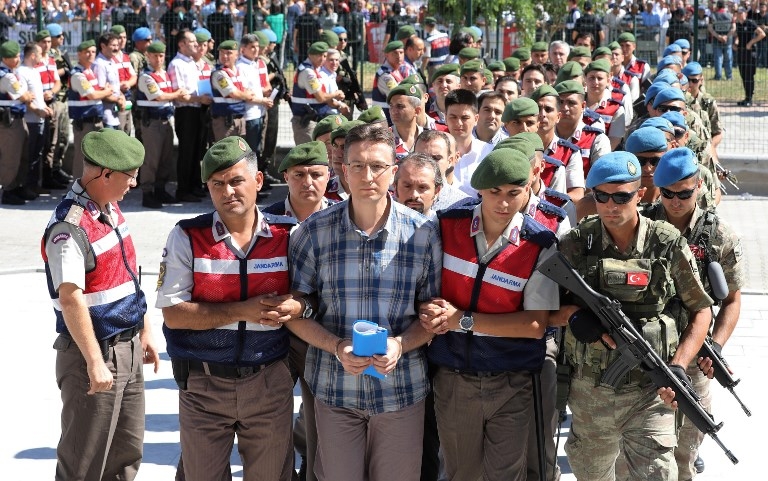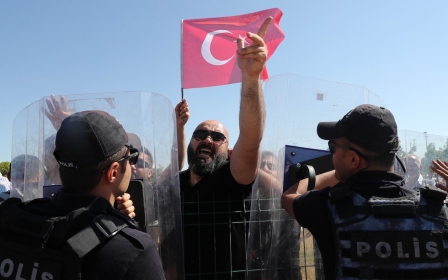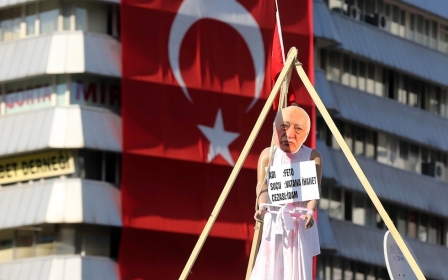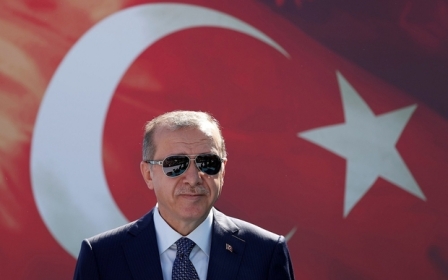Torture 'widespread' after failed Turkey coup, says rights group

People arrested in connection to the failed coup in Turkey have been subject to sexual assault and other forms of torture, according to a new report by Human Rights Watch.
The New York-based rights group claims that torture has become a "widespread" problem after the failed coup in Turkey last year.
It based its conclusion on "credible evidence" in 11 alleged cases of abuse, including claims of severe beatings, threats of sexual assault and of being stripped naked.
But it said the 11 cases represented a fraction of the credible narratives reported in the media and on social media.
"Such reports indicate that torture and ill-treatment in police custody in Turkey have become a widespread problem," HRW said in its latest report.
The alleged victims are suspects accused of links to terror organisations, it said, or those authorities believe are linked to the failed coup.
Some prisoners had reported ill-treatment to prosecutors or during court hearings, allegations which HRW said were not investigated "effectively".
The group said Ankara had failed to "stamp out the sharp rise in abusive practices in police custody over the past year".
"As evidence mounts that torture in police custody has returned to Turkey, the government urgently needs to investigate and call a halt to it," Hugh Williamson, Europe and Central Asia director at HRW, urged in a statement.
HRW said victims were scared to complain due to fear of reprisals against their family.
Abductions
The group also said there were five cases of abductions in Ankara and the western city of Izmir between March and June "that could amount to enforced disappearances".
In one alleged case cited by HRW, Onder Asan, a former teacher, was "abducted" in April and was missing for 42 days before he turned up in police custody and was then sent to pretrial detention.
The Turkish government did not immediately respond to requests for comment.
Last month, Justice Minister Abdulhamit Gul said Turkey had "zero tolerance for torture", noting the government's commitment to human rights.
HRW said the "greatest risk" was for suspects detained over alleged links to the coup-plotters or the outlawed Kurdistan Workers' Party (PKK).
In July, 11 activists from Amnesty International, including the director of Amnesty Turkey, were arrested on terrorism charges.
Individuals from the UK-based human rights group have been arrested for 100 days.
Amnesty has denied any wrongdoing and called for its activists to be released.
Gulen in the spotlight
Ankara blames the attempted overthrow of President Recep Tayyip Erdogan on the US-based Muslim preacher Fethullah Gulen and his organisation, which it has dubbed the Fethullah Terrorist Organisation (FETO).
Erdogan has called on countries around the world to shut down schools and other centres affiliated to the Gulen movement.
The Turkish president most recently visited the Muslim-majority region of Sandzak, a province split between Serbia and Montenegro where he called upon the local authorities to close down a network of schools and clinics run by Gulen in that region.
Earlier this year, Middle East Eye reported how Erdogan's fight against the Gulen movement had reached as far afield as South America, where Turkey's embassy in Colombia accused Turkish professors in Bogota of being linked to the Gulen movement.
Gulen strongly denies Turkey's accusations and insists his movement promotes peace.
Since July 2016, over 50,000 people have been arrested over alleged links to Gulen.
The group also warned of the pressures on lawyers who face "obstacles and risks" as well as the fear of reprisals while representing their clients.
Middle East Eye propose une couverture et une analyse indépendantes et incomparables du Moyen-Orient, de l’Afrique du Nord et d’autres régions du monde. Pour en savoir plus sur la reprise de ce contenu et les frais qui s’appliquent, veuillez remplir ce formulaire [en anglais]. Pour en savoir plus sur MEE, cliquez ici [en anglais].




